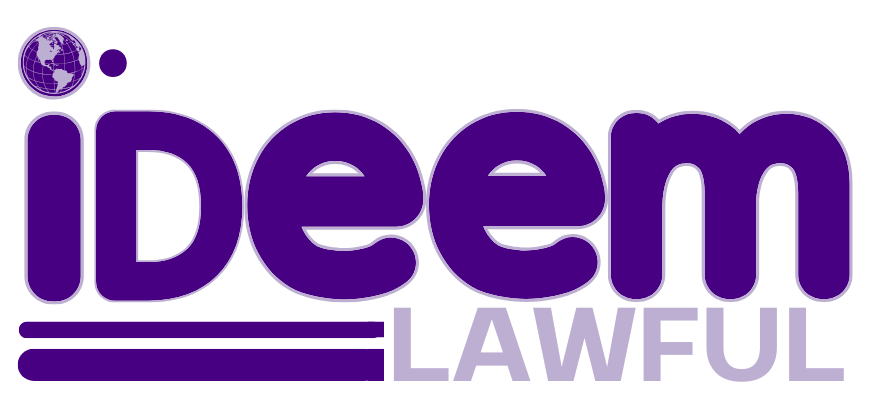Estimated reading time: 7 minutes
1.1. INTRODUCTION
The 21st century trade environment is an era of innovations laced with technology driven ideas poised to ease human existence and speed up development. One great event that is fast changing the face of Trade and Property in the world is intellectual property (IP). The emergence and growth of IP informs the birth of copyrights, trademarks, patents trade secrets among others which stand as both Property and rights in any kind of commercial transaction. It is not in doubt that the duty of the government is to encourage fair trade practices and equally to ensure healthy competition among practitioners. While this is essential and serve a recipe for an organized and coordinated development, the government initiates the whistleblowing policy in order to discourage unhealthy practices and to flush out individuals and organizations that negatively stand shoulder to shoulder with government policies and propelling activities that affect public interest.
It is incumbent on the government to create a fair market environment for both business practitioners and consumers. Thus where an activity, trade policy/practice stand to violate public interest, the government regardless the revenue fortune should strive to fulfill her constitutional role by protecting public interest. It is on the above background this essay posits to answer the question whether corporate secret should supersede public interest or not? For the purpose of this research, corporate secret is used interchangeably with trade secrets.
MOST READ ARTICLES
1.2. CONCEPTUAL CLARIFICATION
1.2.1. WHISTLEBLOWING
Whistleblowing is the voluntary and lawful disclosure of information a person or discloser believes evidences wrongdoing to an authorized recipient.[1] Whistleblowing policy enables staff in organization to reveal information or secrets that embodies wrongdoing, corruption or disregard public policy.
1.2.2. CORPORATE SECRETS
This entails any knowledge or information whatsoever, be such commercial, professional or business information which is not public knowledge and cannot be easily discovered by others.[2] This include commercial information pertaining to clients and/or the company’s links with third parties, trade secrets and information that is ordinarily not in the public knowledge.
1.2.3. PUBLIC INTEREST
Public interest is the welfare or well-being of the general public.[3] The term public interest extends to things which affects the welfare, health, life, development and general well-being of the people.
1.3. NATURE OF CORPORATE SECRETS (TRADE SECRETS)
As earlier stated, corporate secrets include any knowledge or information, be such commercial, professional, or business related which is not public knowledge and cannot be easily discovered by others legally.[4] Drawing from this definition, it is safe for one to term corporate secret as trade secrets. It is a truism that trade secrets are now a major part of intellectual property, due to the several resolutions in trade and commercial competitions.[5] Trade secrets is defined as any process or practice of a company that is generally not known outside of the company or organization. Information considered a trade secret gives the company a business advantage over its competitors and it’s often a product of internal research and development.[6] Coca-Cola’s formula for their signature drink, Kentucky Fried Chickens (KFC) secret blend of II herbs and spices, and Google’s search algorithm are typical examples of corporate secret.
To ensure a working environment for Corporate Practitioners, the protection of its Trade secrets is kingly important. Article 39 of Trade-Related Aspects of Intellectual Property Rights (TRIPS) has classified trade secrets as undisclosed information that needs to be protected so long as such information: “a. Is secret in the sense that it is not, as a body or in the precise configuration and assembly of its components, generally known among or readily accessible to persons within the circles that normally deal with the kind of information in question;
b. Has commercial value because it is secret; and
c. Has been subject to reasonable steps under the circumstances, by the person lawfully in control of the information, to keep it secret.”[7]
Similarly, the Uniform Trade Secrets Act (UTSA) adopted by most States of the United States of America. UTSA defines a trade secret as:
“… information, including a formula, pattern, compilation, program, device, method, technique, or process, that:
- derives independent economic value, actual or potential, from not being generally known to, and not being readily ascertainable by proper means, other persons who can obtain economic value from its disclosure or use, and
- is the subject of efforts that are reasonable under the circumstances to maintain its secrecy.[8]
It is apt to point out here that in Nigeria trade secrets are recognized however, there is no proper legal framework establishing rights and duties and the its enforcement. In other countries, there are specific legislations such as the Uganda Trade Protection Act 2009, the United States of America’s Uniform Trade Secrets Protection Act 1785, the Defend Trade Secrets Act 2016 and Article 39 of TRIPS.[9] The implication of the lack of legal framework on trade secrets in Nigeria is the absence of a clear cut path on what trade secrets (company secrets) entails and the absence of path to remedy in cases of breaches and trade secrets theft.
However, corporate entities could adopt the confidentiality/non-disclosure and non-compete agreements. The employer/licensor of the trade secret executes a Confidentiality/Non-disclosure Agreement (CNDA) with every employee and contractor of the business, most especially those exposed to or who come in contact with and may have knowledge of such trade secret.[10]
1.4. SHOULD CORPORATE SECRET SUPERSEDE PUBLIC INTEREST?
Section 14 (2) (b) of the 1999 Constitution of the Federal Republic of Nigeria provide thus: “the security and welfare of people shall be the primary purpose of government.”[11] This chief duty placed on the government by the Constitution entails the provision of a healthy environment for trade, maintaining a healthy competition among practitioners and seeing to the protection of the welfare of the people. No government in any part of the world would put the interest of her people in jeopardy. Hence, every rights and privilege conferred by the Constitution stand derogable in the interest of defense, public order, safety, health and morality.[12]
Flowing from the above, practioners of trade or businesses and holders of corporate secrets and any other information cannot be watertight. This is predicated on the thoughts that regardless its guarantee and inscription in laws, once such secrets or information becomes detrimental to public interest in any form and in whatever degree it loses its legal shield. Public interest is of paramount importance to the government and once an information or practice of any organization stand shoulder to shoulder with it negatively, public interest should supersede and be given due attention and express consideration.
1.5. CONCLUSION & RECOMMENDATION
As discussed herein, corporate secrets are essential to the growth of business organizations and help business empires to stay un-top regardless the pace of the competition in such sector. It is worthy to note that Businesses have a significant interest in protecting not only their intellectual property in the form of patents, trademarks and copyrights, but also in the day-to-day information that fuels their business. This can be customer lists, the specifics of transaction, and plans for the future, etc. Broadly, these are called “trade secrets” and businesses take great measures to prevent employees from disclosing these trade secrets to others.[13] Similarly, it is the duty of the government to create an enabling environment for businesses and also clothed on the other hand with the requisite authority to control and even bring to halt the operations of any business organizations that stand against public interest. Flowing from the above, it is the submission of this Author that regardless the revenue fortune any business organization hold, as long as it evidences corruption, fraud and endangers the welfare and wellbeing of the public, public interest should supersede.
I therefore recommend the following:
- Whistleblowing policy should be encourage in the corporate sector in order to expose fraudulent secrets.
- Government should enact laws that would clearly define trade secrets in the Nigerian context, establish rights and duties and provide a clear path in seeking remedy.
- An agency should be establish to monitor activities of businesses in relation to their secrets and power to prosecute where activities of such organizations violate public interest and evidences fraud.
Stephen Peter Okangla writes from the University of Maiduguri Borno State. He can be reached via:
08132040369 and stephenokangla@gmail.conm
[1] “What is whistleblowing?” <https://www.dni.gov/icig-whistleblower/what-is.html > accessed 19 March 2024
[2] “Company secrets” <https://www.lawinsider.com/dictionary/company-secrets > accessed 19 March 2024
[3] “Public Interest” <https://www.dictionary.com/browse/public-interest > accessed 19 March 2024
[4] “Company secrets” <https://www.lawinsider.com/dictionary/company-secrets > accessed 19 March 2024
[5] “Trade Secret and Consumer Protection in Nigeria” <www.gelias.com > accessed 21 March 2024
[6] “Trade Secret” <https://www.investopedia.com/terms/t/trade-secret.asp > accessed 21 March 2024
[7] OM Atoyebi et Others “The Protection of Trade Secrets and Confidential Information in Nigeria”
[8] ULA, Section 1 (4), 14 372
[9] “Trade Secret and Consumer Protection in Nigeria” <www.gelias.com > accessed 21 March 2024
[10] PS Menell “Non-disclosure agreement and other Techniques”
[11] 1999 CFRN (as amended), Section 14 (2) (b)
[12] 1999 CFRN (as amended), Section 45 (1) (a)
[13] “Divulging Trade Secrets”< https://blowthewhistle.com/can-sued-divulging-trade-secrets-bring-whistleblowing-claim/ > accessed 21 March 2024


